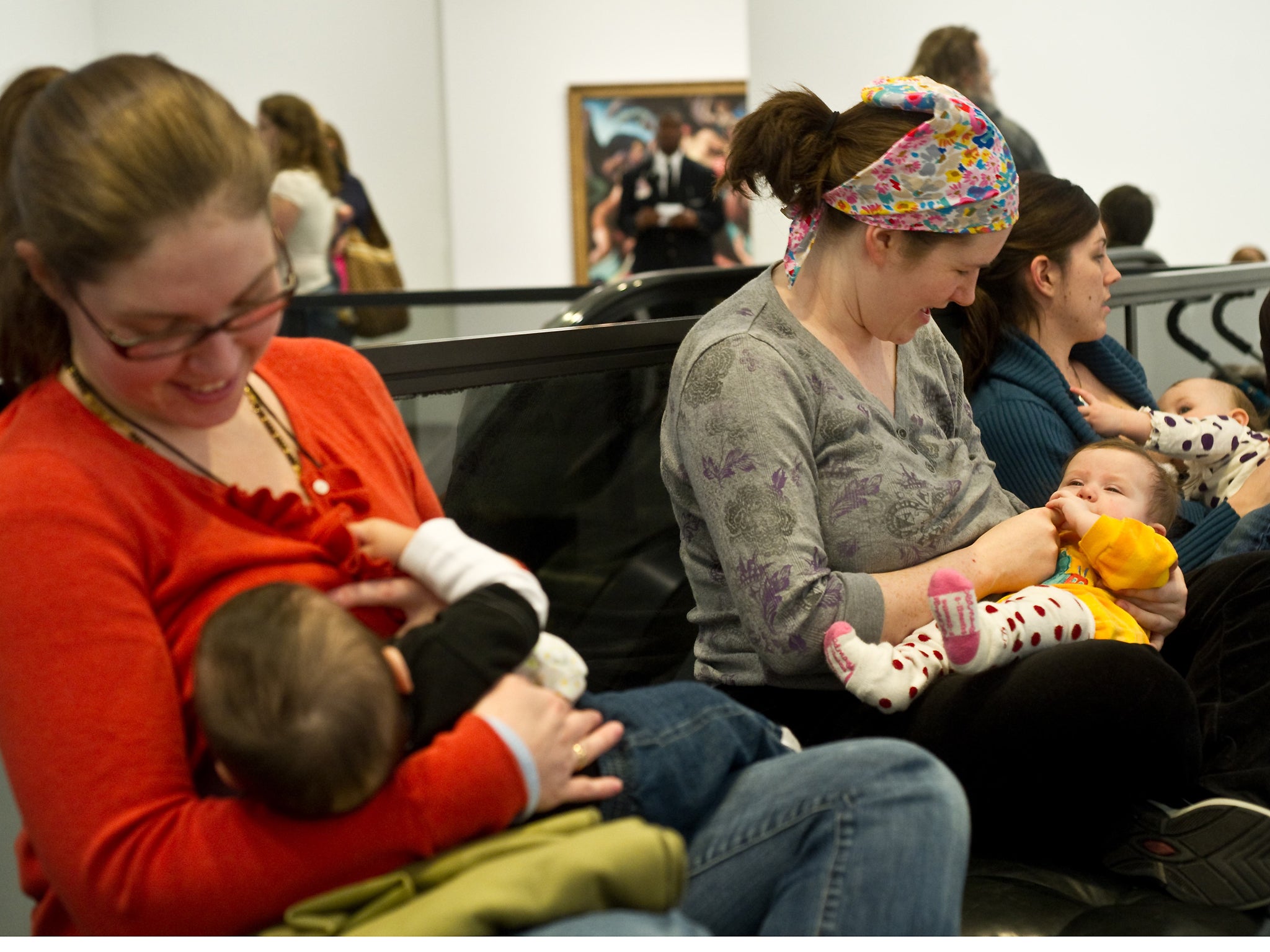Mothers breastfeeding babies for longer with one in three still breastfeeding at six months

Your support helps us to tell the story
From reproductive rights to climate change to Big Tech, The Independent is on the ground when the story is developing. Whether it's investigating the financials of Elon Musk's pro-Trump PAC or producing our latest documentary, 'The A Word', which shines a light on the American women fighting for reproductive rights, we know how important it is to parse out the facts from the messaging.
At such a critical moment in US history, we need reporters on the ground. Your donation allows us to keep sending journalists to speak to both sides of the story.
The Independent is trusted by Americans across the entire political spectrum. And unlike many other quality news outlets, we choose not to lock Americans out of our reporting and analysis with paywalls. We believe quality journalism should be available to everyone, paid for by those who can afford it.
Your support makes all the difference.Mothers are breastfeeding their babies for longer, with one in three still breastfeeding in some form at six months, according to new figures from the Health and Social Care Information Centre (HSCIC).
In 2010 81 per cent of mothers in the UK initially breastfed at birth, an increase from 76 per cent in 2005. By the time babies were six months old, 34 per cent were still breastfeeding in some capacity, compared to 25 per cent in 2005.
It also shows that 69 per cent of mothers exclusively breastfed at birth, a rise from 65 per cent of mothers in 2005.
However, the number of mothers following government guidelines on exclusive breastfeeding remained unchanged between 2005 and 2010 – with one in every hundred breastfeeding exclusively for the first six months of their baby’s life.
The Infant Feeding Survey 2010 also showed that mothers were most likely to start breastfeeding if they were aged 30 or over (87 per cent); from a minority ethnic group (Chinese– 97 per cent, Black– 96 per cent and Asian – 95 per cent); university educated (91 per cent) or living in affluent areas (89 per cent).
Many mothers who stopped breastfeeding reported that would have liked to have carried on for longer. The three most common reasons given by mothers for stopping breastfeeding within the first couple of weeks were: baby rejecting the breast (33 per cent); mother experiencing painful breasts (22 per cent) and mother’s fears that the milk supply was insufficient (17 per cent).
Louise Silverton, the Royal College of Midwives’ director for midwifery, welcomed the rise but warned that there was still room for improvement in breastfeeding among groups with traditionally lower breastfeeding rates and those who tend to breastfeed for shorter durations.
She added: “There needs to be a sea change in public attitudes towards breastfeeding in public places and more need to be done to increase the visibility of breastfeeding and its acceptability in public. We are concerned that due to staff shortages women may not be getting the postnatal support they need from midwives whilst they establish breastfeeding in the early days after birth, due to a lack of time and resources for midwives to spend with women.”
Join our commenting forum
Join thought-provoking conversations, follow other Independent readers and see their replies
Comments